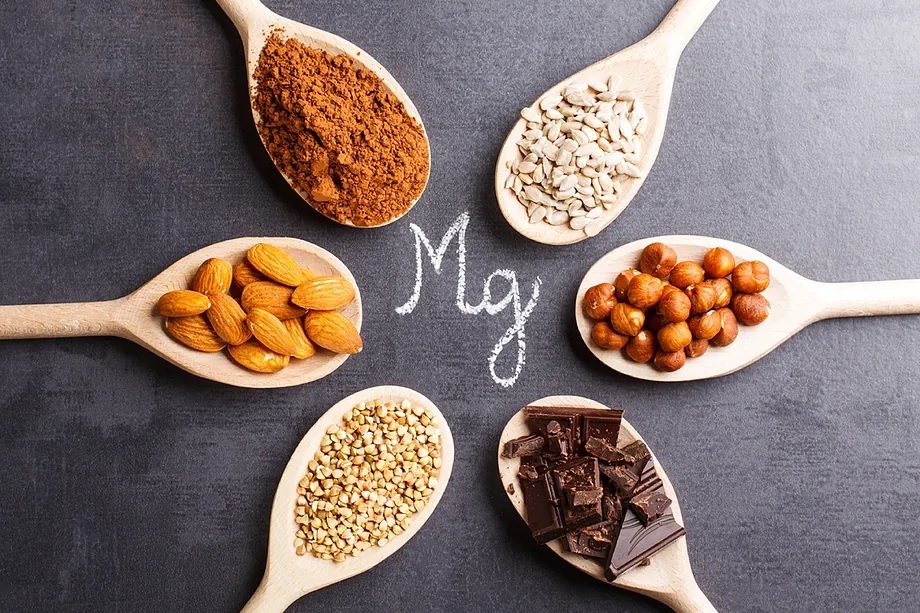In the field of health and well-being, there is a lot of misinformation, dogmas, and different trends. It is difficult to find absolute truths, especially when it comes to supplements. Not so with magnesium, essential for practically any expert you ask or any reference book on the subject. At ZEN, we have multiple examples of professionals who would choose it over any other dietary supplement.
One of them is Antonio Valenzuela, master in Clinical Psychoneuroimmunology, physiotherapist, expert in orthomolecular therapy, and author of Activa tus mitocondrias. El secreto para una vida más longeva (Alienta Editorial), where he dedicates a whole chapter to magnesium: "It is an essential mineral to activate the function of 325 biochemical reactions that occur in our body, including energy production (ATP synthesis) in the mitochondria, as well as the maintenance of both cellular and mitochondrial DNA and protein synthesis." In summary, it is vital for the energy machinery.
It is so important, he details, that it gives plants their green color, present in chlorophyll, and allows them to carry out photosynthesis. "Without magnesium, plants could not convert energy into food, so imagine what we owe them," he insists. Also, he mentions, it is the only nutrient that has its own scientific journal: Magnesium Research. He also explains that magnesium is key to good bone health, to the point that our body can deplete our bones to obtain it if we lack it, it combats inflammation, which in turn triggers multiple diseases, and is especially necessary in glucose metabolism.
"Mitochondria need more magnesium to use glucose as fuel than to use fats. Without magnesium, sugar cannot enter the cell correctly, it rises in the blood, and therefore, the risk of diabetes increases." This mineral also plays a key role, Valenzuela continues, in muscle contraction. As a physiotherapist, he constantly sees how a lack of magnesium translates into muscle cramps and spasms.
The expert adds to the list good brain and heart health. "It regulates neurotransmitters such as acetylcholine (memory), dopamine (motivation), serotonin (well-being), and GABA (relaxation)."
"It really is a master mineral! It helps transport calcium and potassium through cell membranes, which is essential for muscle contraction and relaxation," supports Jessica Sepel, expert nutritionist and founder of JSHealth Vitamins.
Advanced Magnesium+ Powder, from JSHealth Vitamins, is taken by dissolving two tablespoons in water, for example, before going to bed.EL MUNDO
We have between 25 and 30 grams of magnesium in the body on average, according to the National Institutes of Health (NIH), with 50-60% of this magnesium stored in bones and the rest in soft tissues, cells, and blood. Due to the low circulating magnesium in the blood, detecting deficiency based on an analysis is complex. However, levels below 2.19 mg/dl would be an approximate standard value for deficiency, according to the professionals consulted. "Recent statistics reveal that around 30% of the population in developed countries have deficiencies in this valuable mineral," admits Valenzuela, who indicates some symptoms such as general fatigue, irritability, muscle cramps, dizziness, arrhythmias and palpitations, tics...
In his book, he warns that we eat few vegetables in general, many people have intestinal problems and/or a high consumption of cereals that reduce their absorption, and we abuse medications. To this, we add "increasingly poor soils in magnesium, a consequence of intensive agriculture."
"Although magnesium is abundant in many different types of foods, due to our increasingly processed Western diet, many of us are not consuming enough dietary magnesium. The reduction of magnesium levels in the soil has also resulted in a significant decrease in magnesium levels in fresh fruits and vegetables," emphasizes Sepel.
Several studies, although showing varied quality, link the positive effects of magnesium supplementation in depressive states, anxiety and/or stress, improving mood. There are even studies that have explored the relationship between magnesium supplementation and improved sleep quality.
In which cases is it convenient to supplement? "Especially in people who do a lot of sports, who have cardio-metabolic risk, osteoporosis, frequent headaches or migraines. Also, in times when we are more stressed, during menopause, or if we sleep poorly," says Álvaro Campillo, general and digestive surgeon at the J.M. Morales Meseguer University General Hospital (Murcia) and partner at Kobho Labs.
For Britany Real, pharmacist for Naturadika, it is even more interesting for women in specific stages. "During menstruation, magnesium helps reduce cramps by acting as a natural muscle relaxant and decreases the production of prostaglandins, which are responsible for pain. In menopause, it contributes to maintaining bone density, participating in the synthesis of vitamin D and calcium, and regulating hormonal balance, which can reduce symptoms of irritability and hot flashes." During pregnancy and lactation, it can be useful, but here she recommends always consulting a doctor before taking any type of supplement.
Reaching the recommended daily levels can be a challenge with diet alone, the pharmacist indicates. "Although it is possible to obtain magnesium through food, supplementation may be necessary to ensure optimal levels, especially in life stages where needs are greater or absorption may be compromised."
"The European Food Safety Authority recommends a dose for adults of 350 mg of magnesium per day for men and 300 mg per day for women. This varies from person to person, depending on your health and personal goals," explains Sepel. But Antonio Valenzuela comments that exceeding these amounts is not dangerous, quite the opposite. "People who consume more than 500 mg per day show better health in several studies." The standard dose in supplementation is between 240 and 480 mg/day, depending on dietary intake and lifestyle. "I like to individualize the dose, so I usually recommend 5 mg of magnesium per kilogram of body weight per day," Valenzuela proposes, giving an example. "For a person weighing 80 kg, I would recommend 400 mg of magnesium."
